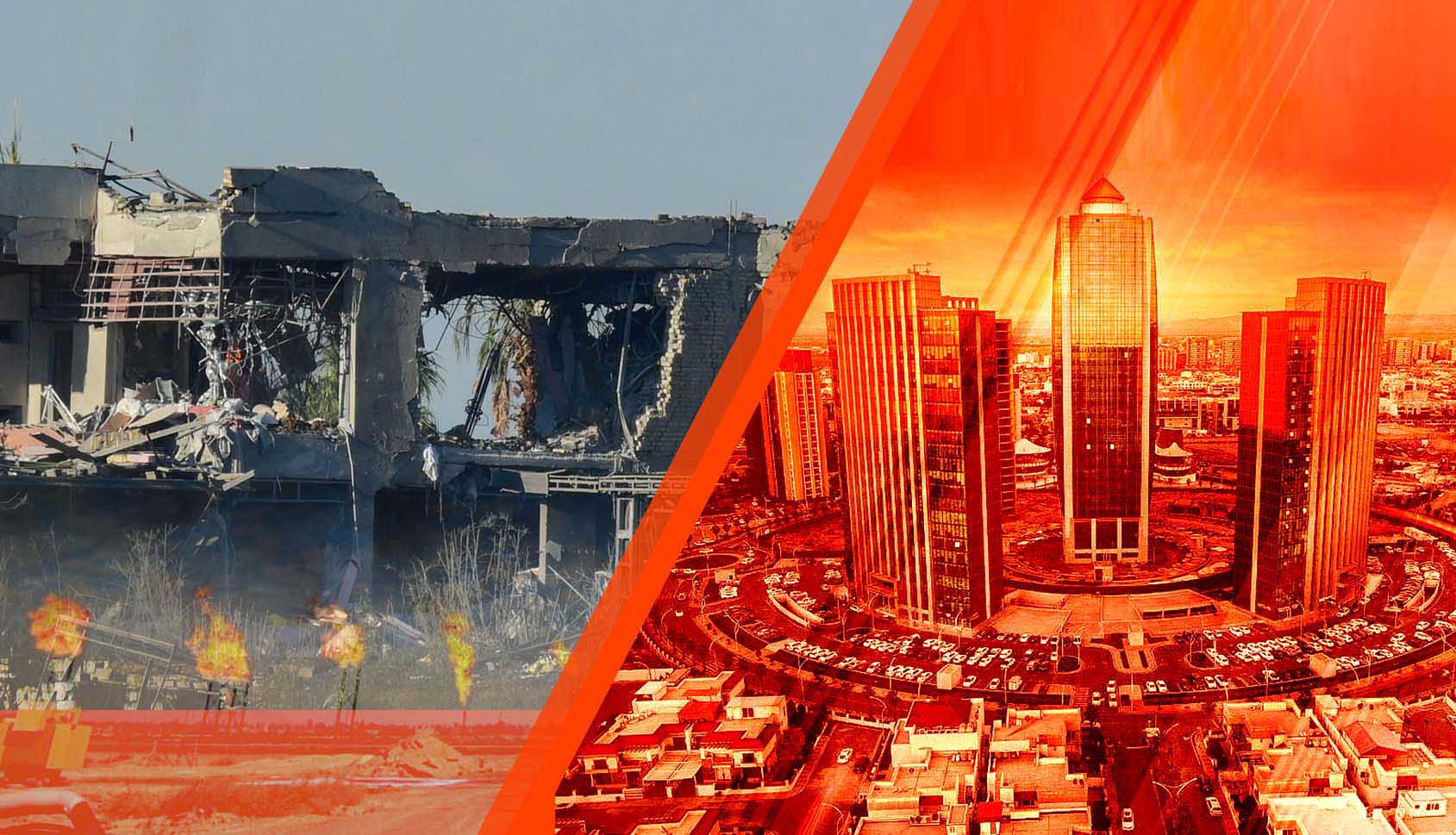Overview
On the nights of January 15th-16th, 2024, and March 13th, 2022, the Iranian Revolutionary Guard Corps targeted a residence in Erbil belonging to a businessman. Tragically, a one-year-old child lost her life along with her father in the attack, causing significant damage and injuries to several family members, children, servants, and guards.
The US State Department condemned the attack as reckless, emphasizing its impact on civilians, including women and children in their homes. Despite Iran justifying the assault with an unproven story about Israel's presence in Erbil, the tragic targeting of a one-year-old child and her father raises doubts about the Iranian narrative. Beyond alleged security concerns, Iran's true objective appears to be destabilizing the Kurdistan Region, impacting key sectors such as real estate and energy. The real estate sector, constituting 28% of total investment, has seen over $18.9 billion invested in less than 17 years. Similarly, the energy sector has attracted tens of billions of dollars. This economic perspective sheds light on another dimension of Iran's ballistic attacks on Erbil's businessmen's homes, beyond the political and security implications.
Targeting Real Estate and Energy Companies!
According to the Kurdistan Board of Investment, the Kurdistan Region has attracted a substantial total capital of $67 billion in all sectors from 2006 to 2023, with $18.9 billion specifically allocated to real estate. Out of the $67 billion capital across various sectors, $41 billion is concentrated in Erbil, particularly within the city center.
Through collaboration with both domestic and international entities, Falcon Group of Companies has played a pivotal role in a comprehensive overhaul of the real estate sector's infrastructure in the Kurdistan Region and Erbil. This collaborative effort has successfully ushered the sector into a new era of advanced architecture and construction.
Since 2005, Peshraw Dizayee, the owner of Falcon Group, has spearheaded transformative developments in Erbil's real estate infrastructure, particularly with the establishment of the Empire project. Notably, of the $18.9 billion invested in the real estate sector over the past 17 years, over $11 billion has been dedicated to Erbil province, primarily driven by Falcon Group projects. Comprising 16 companies focused on construction and commerce, Falcon Group does not engage in special activities in the field of oil and energy exports, contrary to reports from certain media and unofficial channels associated with the Revolutionary Guard Corps.
On March 13, 2022, the Iranian Revolutionary Guard Corps executed a missile strike on the residence of Sheikh Baz Barzanji, a prominent energy businessman and the CEO of Kar Group. The attack, aimed at the group's owner, left Bano Sheikh Baz, who spoke to Rudaw shortly after the assault, unequivocally dismissing the Islamic Republic's justifications for the ballistic attack on Erbil and residents' homes. She vividly described the incident, stating, "No one could stand because the windows were shattered. That was our situation that night. We put on whatever shoes we could find and whatever jacket we could find. We were in the garden and could see the missiles in the sky as they passed us."
Certainly, akin to international IOC companies, Kar Group has been a pivotal force in advancing the oil and gas sector, including refining, ushering in a new era for the Kurdistan Region from its inception. Notably, Kar Group has been instrumental in initiating and enhancing energy production and refining within the region. Presently, the company achieves a daily production of approximately 100,000 barrels of oil, while also refining over 100,000 barrels of crude oil to yield products like gasoline, kerosene, bitumen, etc. These products serve both domestic needs and are exported to various Iraqi provinces.
In the aftermath of the attack two years ago, various interpretations and connections were explored, yet neither domestic narratives nor the explanations from the Islamic Republic proved to be accurate. A government-created inquiry committee, reporting two months post-incident, affirmed, "No evidence or tools indicative of espionage activities were found at the scene of the missile attack in Erbil. Iraqi citizens affected by the incident have the right to seek compensation." Consequently, there is an anticipation that, like the previous night, this latest attack has resulted in civilian casualties, encompassing men, women, and children.
Conclusion
The recent attacks on the residence of the real estate businessman occurred earlier in the night compared to the incident two years ago. This, beyond the political, security, and economic dimensions discussed earlier, heightened fear among the people and increased awareness of citizens in the Kurdistan Region, specifically Erbil.
Despite the swift claim of responsibility and various statements, accompanied by a fabricated narrative behind the missile attacks, the undeniable truth remains that civilians, including a child under the age of one, were discovered amidst the wreckage.
While the Kurdistan Region, especially Erbil, had embarked on a distinct phase in energy and real estate, distinct from the central and southern regions of Iraq, the Revolutionary Guards' recurrent missile assaults pose a significant threat to the environment cultivated for these sectors. This, in turn, jeopardizes investor trust and raises questions about their continued presence in the Kurdistan Region. In conclusion, the Iranian narrative attributing the attacks to Israel, fueled by fear and imagination, stands in stark contrast to the on-the-ground realities in Erbil.

